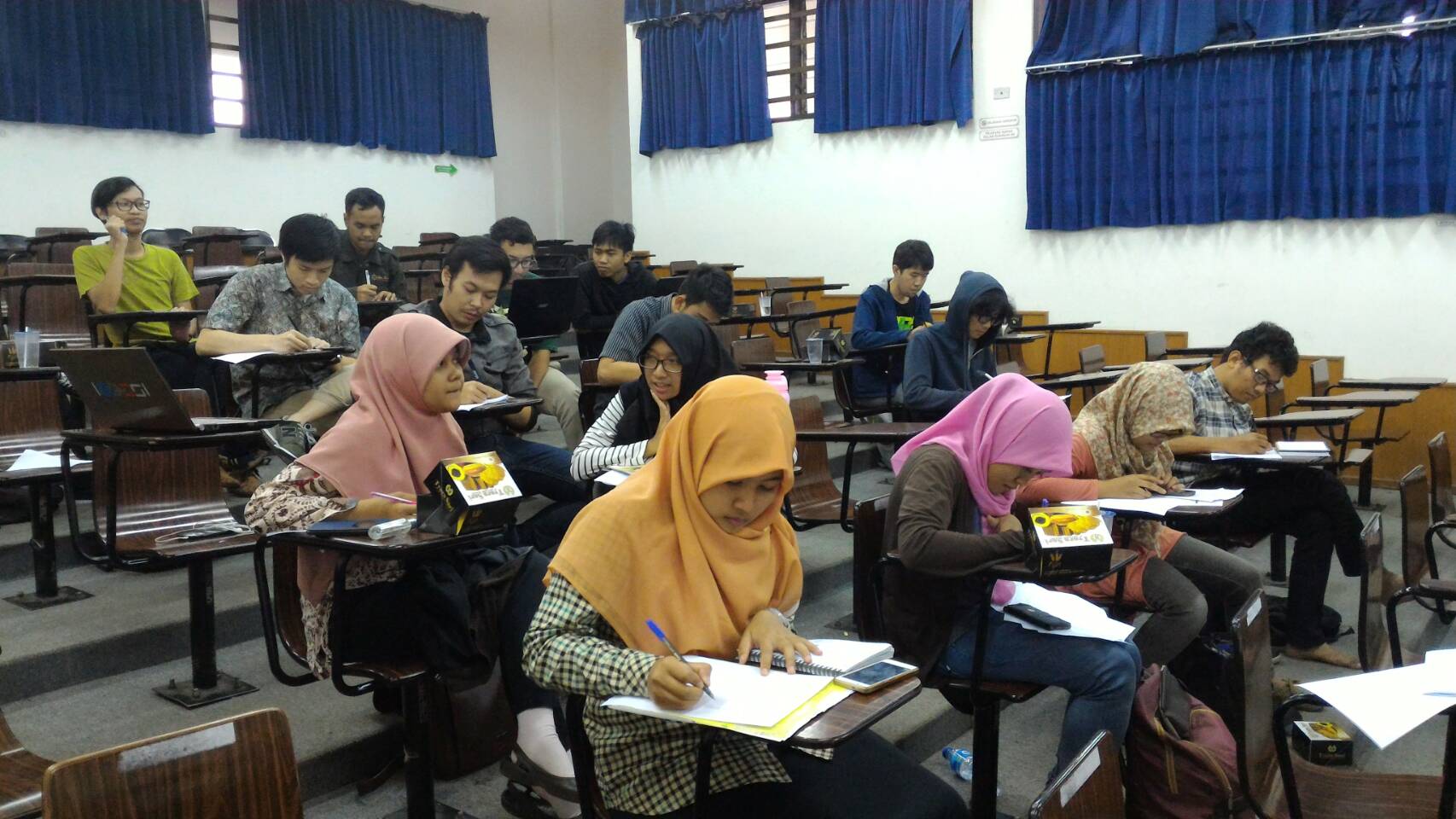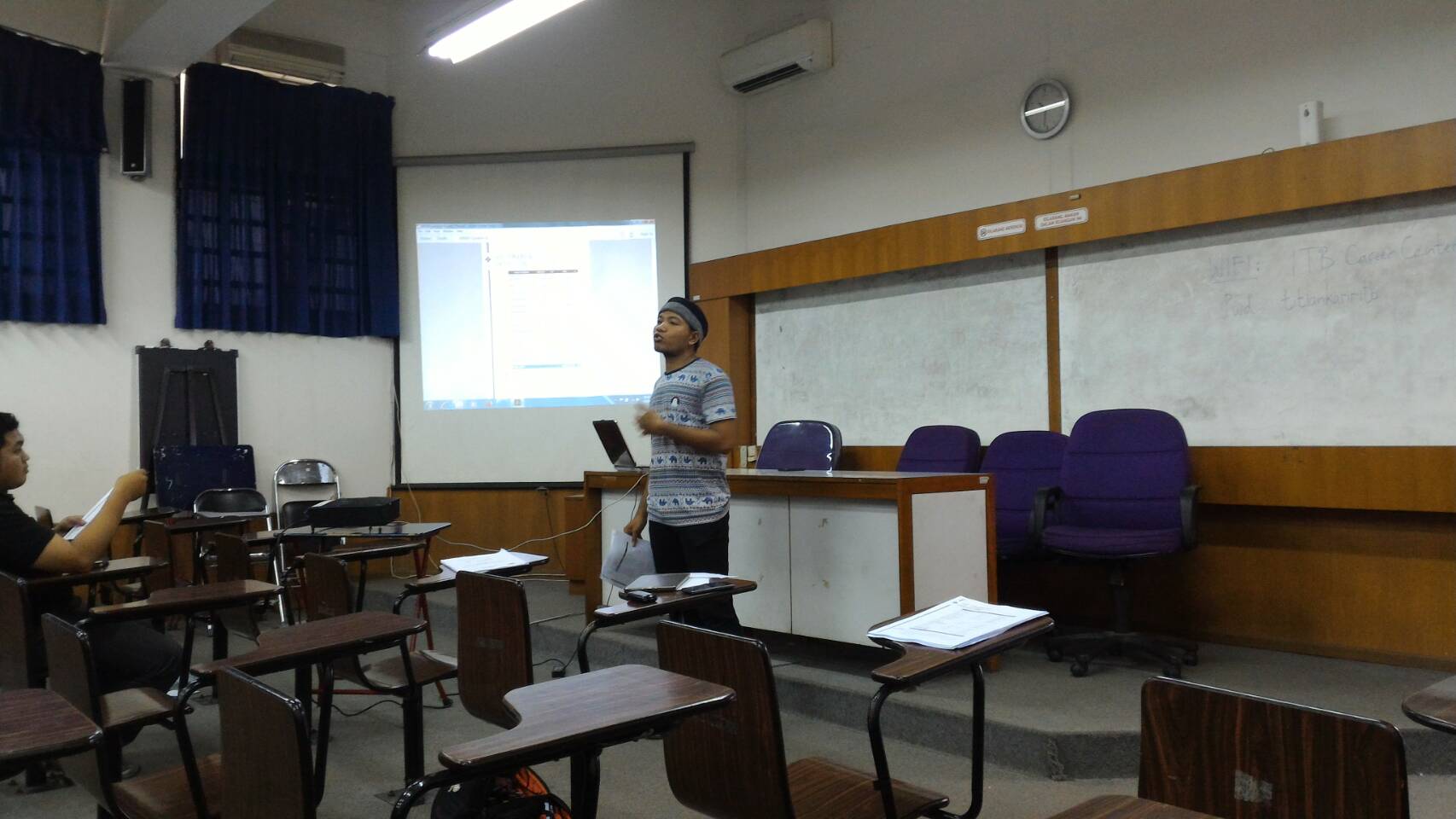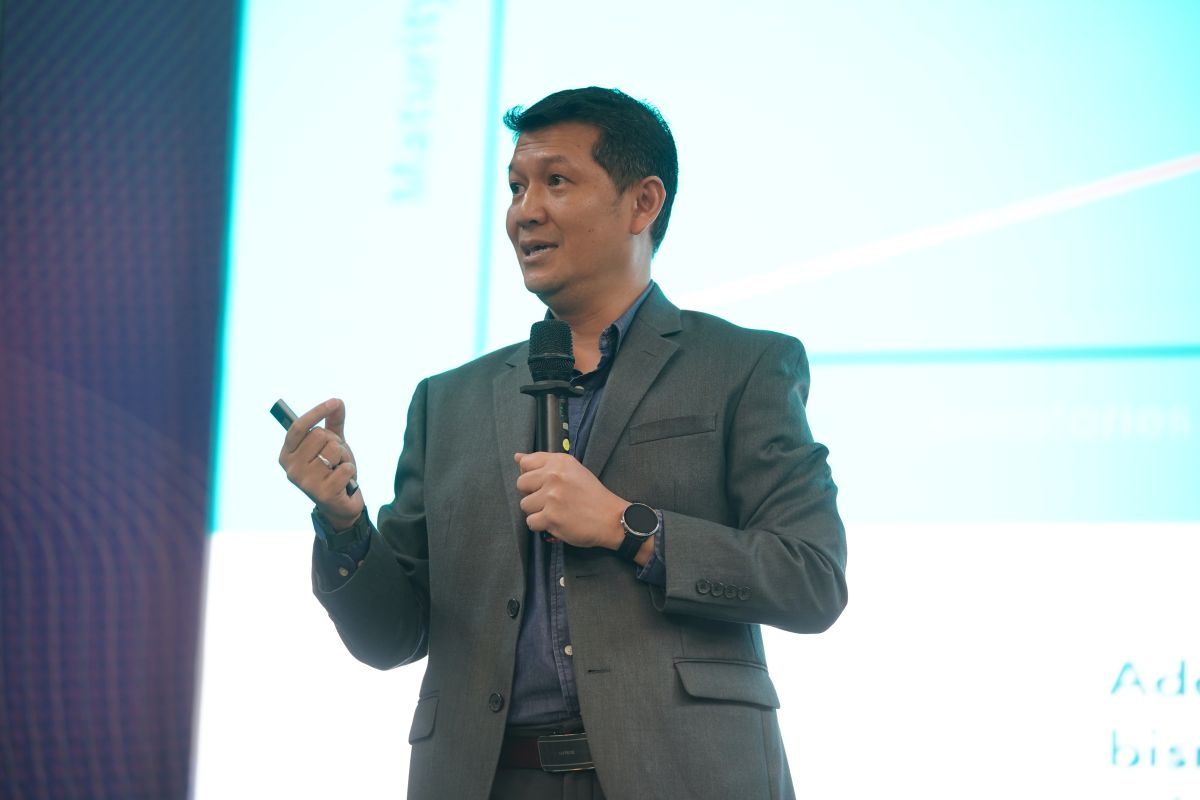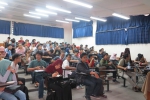PMW ITB: Reinforcing Basics of Sociopreneurship
By Mega Liani Putri
Editor Mega Liani Putri

 BANDUNG, itb.ac.id - People nowadays are required to be flexible to grow. Being tough and innovative is essential to survive in this modern era. Since 2015, the ITB Student Entrepreneurship Program (PMW) has been accommodating students to learn about those values. On Sunday (24/04/16) the entrepreneurship training was held in ITB East General Lecture Building (GKU) at Room 9211 and was attended by 43 participants.
BANDUNG, itb.ac.id - People nowadays are required to be flexible to grow. Being tough and innovative is essential to survive in this modern era. Since 2015, the ITB Student Entrepreneurship Program (PMW) has been accommodating students to learn about those values. On Sunday (24/04/16) the entrepreneurship training was held in ITB East General Lecture Building (GKU) at Room 9211 and was attended by 43 participants.
PMW: A Place for Aspiring Entrepreneurs
PMW is a program developed by the Directorate General of Higher Education (Dikti) of the Republic of Indonesia. As a part of the university's policies, the program was intended mainly to facilitate students who are interested in developing entrepreneurship skills based on science, technology, and art. Unlike the Student Creativity Program (PKM), PMW is a university-based competition, so the schedule varies from one university to another. This year marks the 7th PMW competition held by ITB Student Affairs (LK) since 2009 to spark students' passion in entrepreneurship.
Ibnu Ubaidillah (Chemistry 2006) as the Chairman of PMW ITB 2015 explained that the program started with an information session to ITB students. Eligible participants were those who had completed at least 2 semesters, so freshmen were unable to join the program.
 The next stage was the identification and selection of students' proposals carrying the theme of "Efforts to Achieve Indonesian Economic Independence". Students who passed the stage were required to design a business plan that costed no more than Rp8.000.000. Their proposals were then reviewed by a team of judges from banking sector, small and medium enterprises (UKM), and the university. Students had to convince the team of judges to support their start-up schemes.
The next stage was the identification and selection of students' proposals carrying the theme of "Efforts to Achieve Indonesian Economic Independence". Students who passed the stage were required to design a business plan that costed no more than Rp8.000.000. Their proposals were then reviewed by a team of judges from banking sector, small and medium enterprises (UKM), and the university. Students had to convince the team of judges to support their start-up schemes.
There were 43 participants who passed the screening and made their way to the next stage where they would join entrepreneurship classes, monitoring and coaching, as well as entrepreneurship workshops. The competition will be concluded with participants presenting their business plans followed by evaluations from the committees and judges of PMW ITB 2016 in May.
Changing Participants' Perspectives with Basics of Sociopreneurship
Ubai said that this year's event intended to change students' perspectives about an individual's fortune. When they were asked about their preference to employ a single or a married candidate, most of the students preferred to employ the single one. The reason was that a single worker has more time to work than the married one. Ubai wanted to change this way of thinking. He believed that fortune is something that God has arranged and thus he would employ the married worker because it would benefit more people compared to employing a single worker. "Business is not all about logic," Ubai exclaimed.
When questioned about the objectives of PMW ITB, Ubai replied, "The main purpose of this event is to encourage students to think as entrepreneurs and not only to think about finding a job once they graduate." There is something new in this year's PMW. Since the beginning of this event, the committees reinforced the sociopreneur basics to the participants. At the seminar, some social issues were explained to the participants to increase their awareness about Indonesia's present situation.
PMW does not only aim to develop entrepreneur mentalities such as confidence, hard work, innovativeness, and risk-taking, but also to teach empathy and social skills to the participants. Ubai gave an example of business case from a pharmacy student that implemented the Small Office Home Office (SOHO) concept where the workers were not restricted with working hours. The model is very beneficial for parents who want to concentrate on their families in between of work activities.
Ubai explained that in educating children, both father and mother play a role. If this concept is implemented, there will be a lot of parents and children who will get the most out of it. PMW ITB expected the students to think further and deeper before making a decision. They should not focus only in generating as much revenue as possible, but also to give back to community. Concluding his speech, Ubai hoped there will be new entrepreneurs in ITB.
Translated by
ITB Journalist Apprentice 2016
Aldy Kurnia Ramadhan (Petroleum Engineering 2014)


.jpg)

.jpg)



